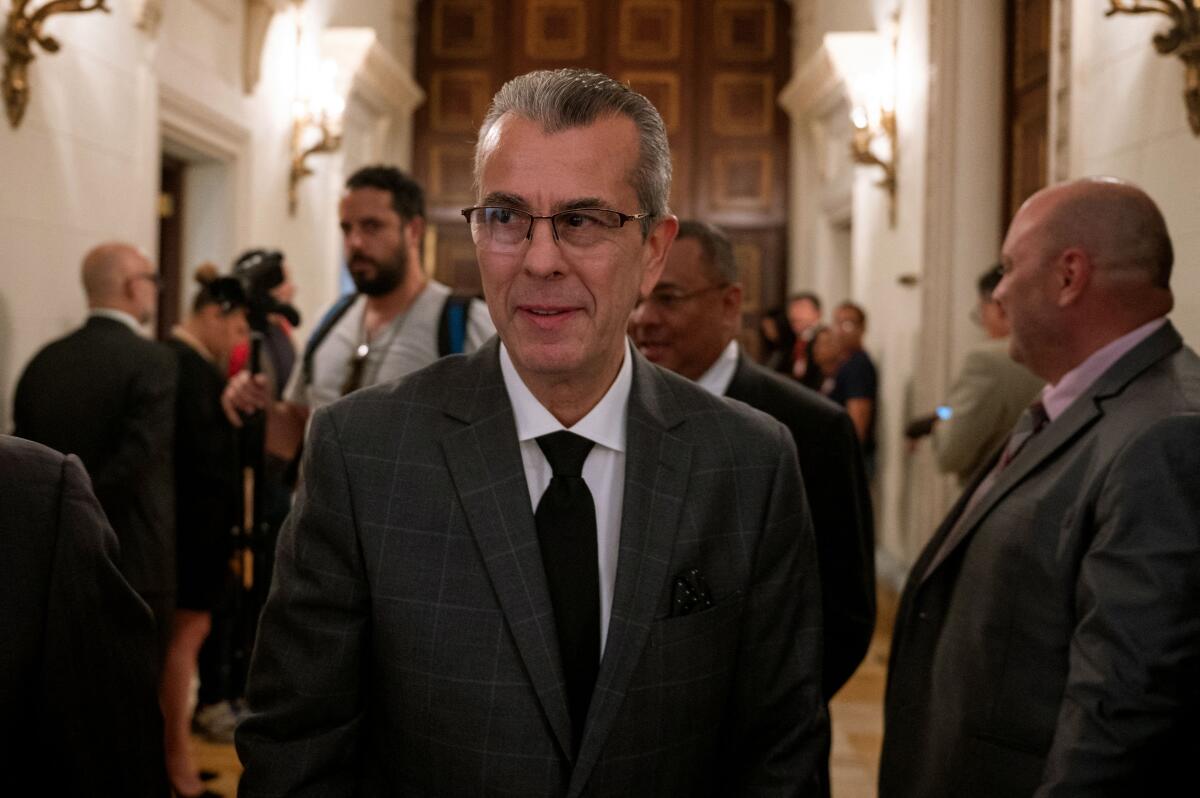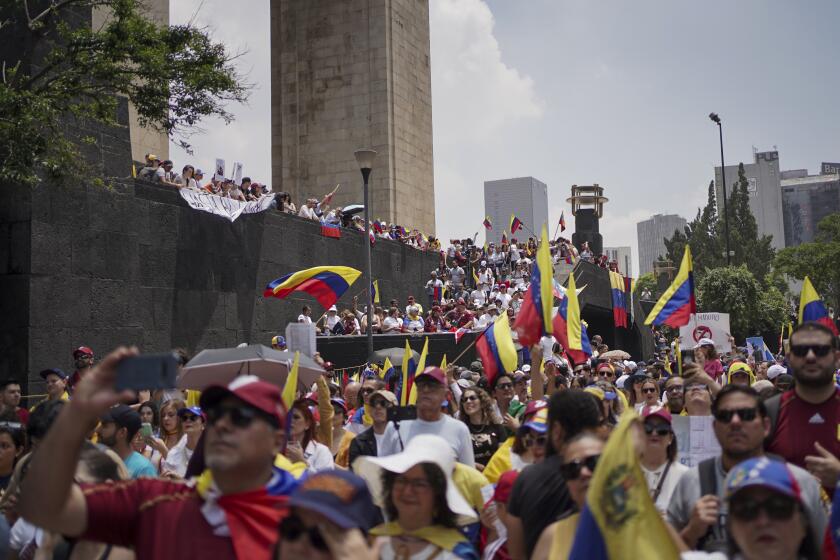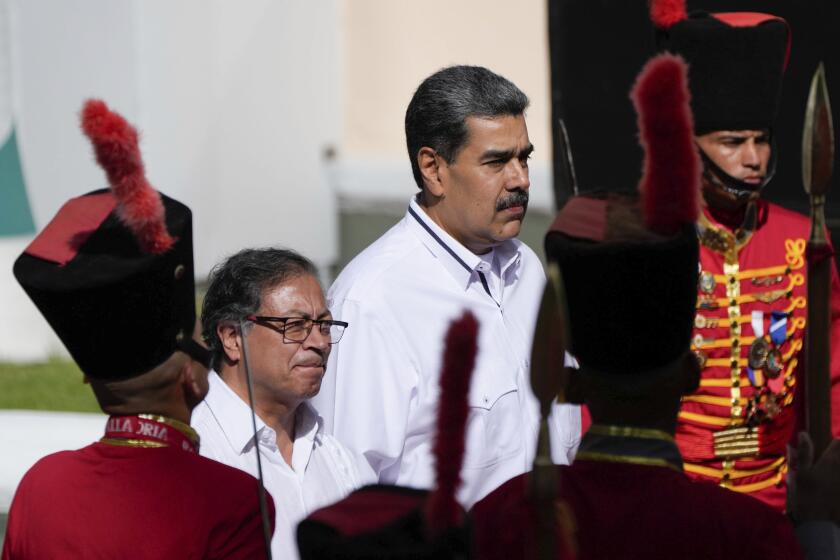Venezuelan electoral official asserts ‘lack of transparency and veracity’ in Maduro’s reelection

- Share via
MIAMI — A Venezuelan electoral official has denounced what he calls a “grave lack of transparency and veracity” in last month’s election results, rebuking authorities who declared President Nicolás Maduro the winner despite strong evidence to the contrary presented by his opponents and doubts from several foreign governments.
Juan Carlos Delpino is one of five members of the National Electoral Council, or CNE in Spanish, and the only one who prior to the vote had shown a willingness to go against the wishes of Maduro’s government.
On Monday, he published on social media a letter detailing several alleged irregularities before and on the day of the July 28 election. He said polling centers were slow to report results from automated voting machines while several opposition volunteers were banished, in violation of electoral rules guaranteeing the transparent transmission of tallies to CNE headquarters.
Delpino said he was informed that the hours-long delay was caused by a supposed hacking of the CNE platform and that only 58% of results had been collected. He said he decided in protest not to join his fellow rectors in monitoring the vote-counting from the CNE data hub or attending the midnight press conference when CNE President Elvis Amoroso, a ruling party loyalist, declared Maduro the winner.
Venezuelans across the world protested the country’s disputed presidential election, which the opposition says it won over the authoritarian Maduro.
“I deeply regret that the results don’t serve the Venezuelan people, that they don’t help resolve our differences or promote national unity, but instead fuel doubts in the majority of Venezuelans and the international community,” Delpino wrote.
Delpino, an electoral expert close to one of Venezuela’s traditional opposition parties, was named to the CNE by the National Assembly controlled by Maduro’s allies last year after several predecessors were removed.
His letter comes as Maduro doubles down on assertions he won reelection by more than 1 million votes. His government has defied calls from the U.S., European Union and even leftist allies from Brazil, Colombia and Mexico to release voting records that would back such claims.
Meanwhile, the opposition has published online what appear to be authentic tallies from 80% of polling machines showing that its candidate, Edmundo González, won by a more than 2-to-1 margin.
Last week, the Venezuelan Supreme Court certified the results and said voting tallies published online by the opposition were forged. Atty. Gen. Tarek William Saab ordered González to testify this week in a criminal investigation over alleged attempts to spread panic in the South American nation by contesting the results.
Under pressure from allies, Venezuela’s Maduro asks Supreme Court to audit the presidential election
President Nicolas Maduro told reporters Wednesday that the ruling party is also ready to show the totality of the tally sheets from Sunday’s election.
González on Sunday indicated he had no intention of complying with the order, saying his due process rights and the Venezuelan Constitution were being trampled and the only authority he is accountable to are voters. He repeated calls for Maduro to release the voting records from about 30,000 machines nationwide so the results can be independently verified by international experts.
“Venezuela is living moments of uncertainty and unease due to your efforts to violate the desire for change,” González said, addressing Maduro directly in a video published on social media. “Releasing the voting acts are the guarantee of peace.”
Former diplomat González and his chief backer, opposition powerhouse Maria Corina Machado, went into hiding after the election as security forces arrested more than 2,000 people and cracked down on demonstrations throughout the country protesting the results.
The two have called for Venezuelans to take to the streets on Wednesday to commemorate a month since their purported victory at the polls.
Delpino, in an interview with the New York Times published Monday, said he too had gone into hiding.
His letter also highlighted what he called a number of irregular decisions by the CNE, including a lack of meetings prior to the vote that made it difficult to set clear rules on the participation of campaign poll workers, international observers and millions of Venezuelans living abroad.
Goodman writes for the Associated Press.
More to Read
Sign up for Essential California
The most important California stories and recommendations in your inbox every morning.
You may occasionally receive promotional content from the Los Angeles Times.












